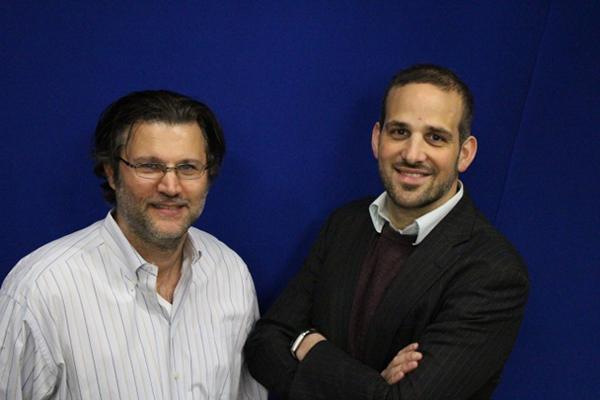Assistant professor of media and public affairs Will Youmans was 7 years old when prominent Palestinian-American activist Alex Odeh was killed by a bomb planted in his Santa Ana, Calif. office in 1985.
The act of terrorism was never prosecuted, hitting home for Youmans because his Palestinian parents and Odeh had been active in the American-Arab Anti-Discrimination Committee.
Thirty years later, Youmans and colleague Jason Osder will use a $15,000 grant from the Sundance Institute Documentary Film Program to dig into the circumstances of his death.

“Right now it exists in the Arab-American community as a piece of folklore,” Youmans said, adding that they are the first independent researchers looking into the case. “The facts haven’t been corralled.”
The project comes on the heels of Osder’s own documentary, “Let the Fire Burn,” which was nominated for the top prize at this year’s Tribeca Film Festival.
His project, created entirely from archival footage, focused on the 1985 bombing of a Philadelphia apartment complex that housed a black liberation group called MOVE. One of the most disastrous police actions in recent history, the bomb killed 11 people, including five children, and left a mark on Osder, who was 11 years old and living a few miles away at the time.
“Let the Fire Burn,” which premiered in 2013, won the award for Best Editing and earned a nomination for Best Documentary at the Tribeca Film Festival. At the 50 film festivals it was shown at worldwide, it received nominations for over a dozen awards.
When Youmans first saw Osder’s film, he immediately recalled the mystery around Odeh’s death, which he said has been largely forgotten outside the Palestinian community. The Federal Bureau of Investigation has offered a $1 million reward for information leading to an arrest on the case, but has not identified any subjects.
“There seems to be a lack of governmental interest in solving the case. That sends a message to the Arab-American community,” Youmans said. “This was a major act of intimidation, but the identity of the killers is still unknown.”
Osder and Youmans, both assistant professors in the School of Media and Public Affairs, partnered on the project last year and have scheduled several big shoots this summer. They plan to film over the next year and expect to complete the project in three to four years.
“It’s a very good partnership because it’s a division of labor,” Youmans said. “While he’s a filmmaker, I’m the subject matter expert. I know the story really well and I have access to the community of interest in this story.”
After several conversations with Youmans, Osder agreed that the story had cinematic potential. With less of a personal connection to the story, Osder said he comes to the project mostly as the filmmaker.
He pointed to several advantages of already having one documentary under his belt as he begins work on this project – more experience, patience and connections.
“There’s a big difference between being a first-time filmmaker versus being a filmmaker with a track record,” Osder said.
Kimberly Gross, acting director of the School of Media and Public Affairs, said the grant, which was received shortly after Osder’s previous documentary success, was a reflection of his growing achievements and the strength of their project.
“It’s historical but so relevant to today to our culture, and the larger geopolitical world,” Gross said.
– Hanna Wilwerth contributed to this report








